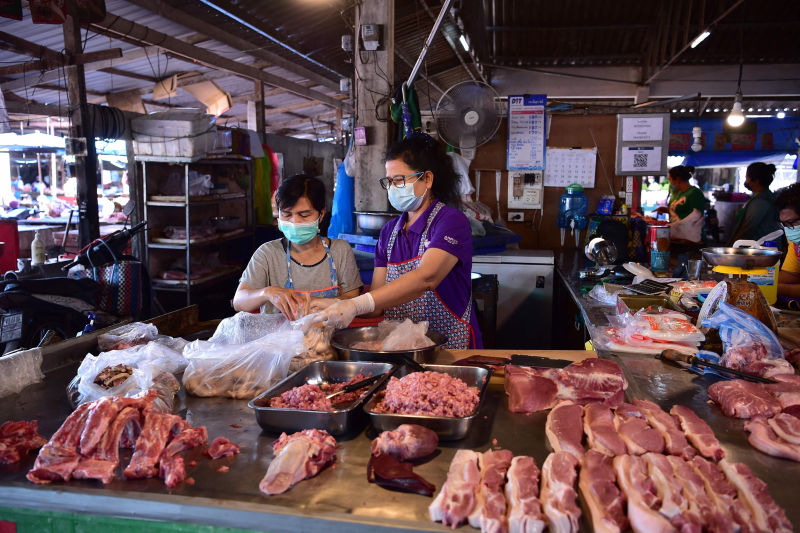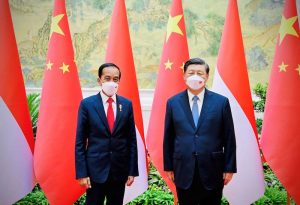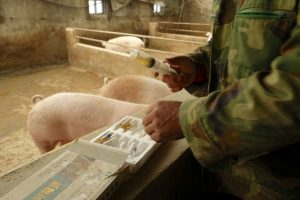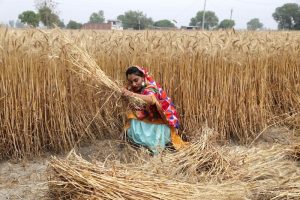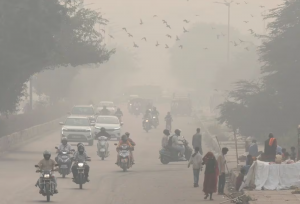Business began unravelling for Thai pig farmer Jintana Jamjumrus two years ago, after dozens of her animals got feverish and died within days of a mysterious illness she suspected of being a viral disease with no known vaccine, African swine fever (ASF).
This month, officials identified the first case of ASF in Jintana’s province of Nakhon Pathom, after years of saying it was not in Thailand, unleashing a political firestorm as pork prices hit an all-time high near which they may stay for months.
“There’s no way they didn’t know. Pigs died all over the country … Why the cover-up?” Jintana, 75, asked about the deaths in previous years. “What can they do now? There’s nothing left.”
In parliament, an opposition lawmaker accused the government of a years-long cover-up, though a deputy agriculture minister denied this, saying authorities had successfully kept out the disease in previous years.
But small farmers, whose losses have driven 54% of them out of business in the past year, are sceptical, particularly as the viral disease, for which there is no vaccine, has killed hundreds of millions of pigs in Europe and Asia since 2018.
“I had to let the sick ones die and sell off the healthy ones,” said Jintana. “My business was all gone.”
Earlier warning would have saved their livelihoods, say the small farmers, and perhaps averted the pork shortage that drove retail prices in Bangkok to 215 baht ($6.47) per kg on Jan. 11, the highest daily average in a database stretching back to 2001.
Nomura analysts Charnon Boonnuch and Euben Paracuelles said retail pork prices surged by 39.7% year-on-year in January, up from 13.8% in December 2021, due to rising concerns about ASF, which was first detected in December.
Authorities estimated that pork supply will fall by about 32% in 2022 and imposed a ban on exports of live pigs until April 5 in response.
“With the weighting of meat in the consumer price index (CPI) basket at 3.5%, we estimate a 10% year-on-year increase in retail pork prices will add 0.2 percentage points to headline inflation,” they said.
If current prices are sustained, it may result in a total impact of 0.6 percentage points in 2022. “We see more upside risks to our headline CPI inflation forecast of 1.2% in 2022, which is near the lower bound of the Bank of Thailand’s 1-3% target range.”
Since the confirmation, Thailand has uncovered African swine fever in 22 areas of 13 provinces and culled more than 400 pigs, all on small farms, said Bunyagith Pinprasong, the director of the Bureau of Disease Control and Veterinary Services.
Between 2019 and 2021, livestock authorities culled nearly 300,000 pigs deemed at high risk of African swine fever, though it was never detected in any samples from dead pigs, Bunyagith told Reuters.
“We implemented strict and effective measures to prevent ASF, which is why it wasn’t found before,” he said. “We will control and curb its spread until a vaccine is developed.”
- Reuters, with additional editing by George Russell
READ MORE:
Taiwan Votes Against Reimposing Ban on US Pork Over Additive
China Shrinks Imports of Iron Ore, Crude Oil and Meat
China Grabs French and Canadian Barley as Pig Herd Grows




